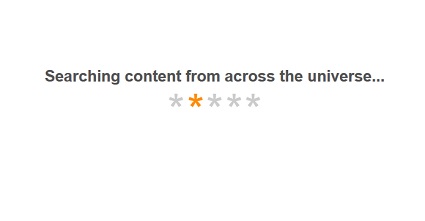Your cart is currently empty!

Tool Tryout Tuesday: Social Mention
Social Mention is a social listening tool that checks blogs, social media platforms, audio and video, comments, bookmarks, and all kinds of stuff for mentions of any term you type into the text box at their home page.
Social Mention is a search engine, but it doesn’t just list the results, as a Twitter search will. It also calculates the proportion of mentions that are positive, the frequency with which your topic is mentioned, and even the degree of passion evoked by your topic.
Rosie and I tried this out on behalf of a few of our clients. We found that a lot of the smaller businesses we work with aren’t mentioned enough to show up very well in Social Mention, while their keywords are often so popular that the results are too broad to be very useful.
We tried it with a controversial topic to get a clearer view of what Social Mention can tell you.
In the screenshot below, we see that “enhanced commonwealth,” a concept relevant to Puerto Rican politics, doesn’t rouse much passion for internet users. In fact, the topic comes up in social media only once every 4 months. That is so infrequent that strength, sentiment, and passion all score zeros.
On the other hand, statehood for Puerto Rico is mentioned a couple of times a day, evokes 26% passion, and garners 4 positive or neutral mentions for every negative mention.
You can sort your results to consider only one type of mention if you prefer, or you can look at everything Social Mention listens to.
And that brought up the first concern we felt about this tool. Rosie tested a key phrase that she knows we use frequently in the client’s social media, and found almost no mentions. “This isn’t accurate,” she said. “We know that the last mention was not 15 days ago, so how can we trust any of this analysis?”
She has a point. Does Social Mention sample data and filter out individuals who mention something frequently? Do they sample data and include a random selection of mentions from each source?
We also wondered how they decide what to show first. We found our clients at the top of the page for many of the topics we searched, but does that actually mean that they have a larger share of the conversation? When we search the client’s company name, can we assume that the mentions at the top of the page are strong influencers? Is it based on reach?
Naturally, we tried to find answers to these questions. Just how does Social Mention work? Social Mention’s answer is pithy:
How does it work?
It works just fine, thank you for asking.
Rosie had further concerns. “What do you do with this?” she wondered. If your social listening informs you that people are passionate and that your mentions are largely neutral, what action would that lead to? At this point, she was feeling that the data was unreliable and the path forward to use of the data was murky, so she was through with this tool.
“Would you go with one of the paid services instead?” Rebecca asked. We’ve seen paid social listening services that paid people to post prefabricated tweets about a client and then showed the client how much more share of the conversation they had, with great excitement. When it comes to unreliable data and murky paths, paying for social listening doesn’t seem like an automatic cure-all.
“Google Analytics,” said Rosie firmly. “It shows when people click through to your website from social media. If they don’t take action, who cares whether they’re passionate?”
She has a point.
We also like to use the search tools at Twitter, which seems to be a more neutral data set than Facebook, which is filled with people building friendships, or LinkedIn, which is filled with people building business relationships. Topsy is one, Twitter has its own, and Sprout Social has a nice one built into its tools, which we use most of the time.
by
Tags:



Leave a Reply